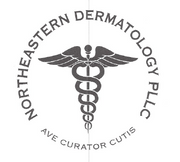
Skin cancer is the most common type of this disease in the United States. Although the idea of being diagnosed with the condition can be concerning, it has a high survival rate if caught early. Understanding this disease allows you to take prevention measures and prepare for the treatment you might need. Here's what to know about it.
A Guide to Skin Cancer
What causes skin cancer?
Skin cancer occurs when abnormal cells grow uncontrollably in the epidermis. These units can become damaged in various ways, and the most common culprit is ultraviolet (UV) radiation from the sun or tanning beds. Genetic DNA mutations, cell replication errors, and a suppressed immune system can also cause this condition to develop.
What are the different types?

There are three main types of skin cancer. Basal cell carcinoma and squamous cell carcinoma are both non-melanoma conditions. The former is the most common type, often found in areas that face sun exposure, including the face, hands, and neck.
The third kind is melanoma, which is rare but aggressive. It is usually in areas of the body not exposed to the sun, such as the armpits and bottom of the feet.
What are the warning signs?
Skin cancer usually shows up first as a spot on the skin that looks like a sore or rash. It could be a new mole or changes to an existing one. Although painless, it can change shape or color and never heal. Keep in mind that symptoms can differ depending on the type of the disorder.
Basal cell carcinoma is usually on sun-exposed areas of the skin. Signs of this condition include spots that look like scars or crusty sores that don't heal. Squamous cell carcinoma can also develop in sun-exposed areas, but its symptoms look like rough, scaly lesions or firm pink nodules. On the other hand, melanoma is seen in any place on the body as a brown patch or bump. It can also look like a mole that changes size and color or bleeds.
How is it treated?
Treatment depends on the type and stage of the disease. Sometimes, the affected area will be removed through excision and then monitored or dermabrasion, where a doctor removes the top layer of skin by rubbing away the cells.
Another procedure includes cryotherapy, which freezes and destroys the abnormal cells. Melanoma or advanced skin cancer can require more intense treatment, such as chemotherapy, radiation, and targeted therapy.
If you're concerned about this condition and are looking for a skin specialist, contact Northeastern Dermatology PLLC in Rocky Mount, NC. This dermatologist has over 30 years of experience treating various skin afflictions, from skin cancer to acne. Whether you need a cancer screening or melanoma treatment, their team will ensure you stay comfortable and informed throughout the process. Call (252) 281-2567 to schedule an appointment, or visit them online to learn more about their services.
About the Business
Have a question? Ask the experts!
Send your question

